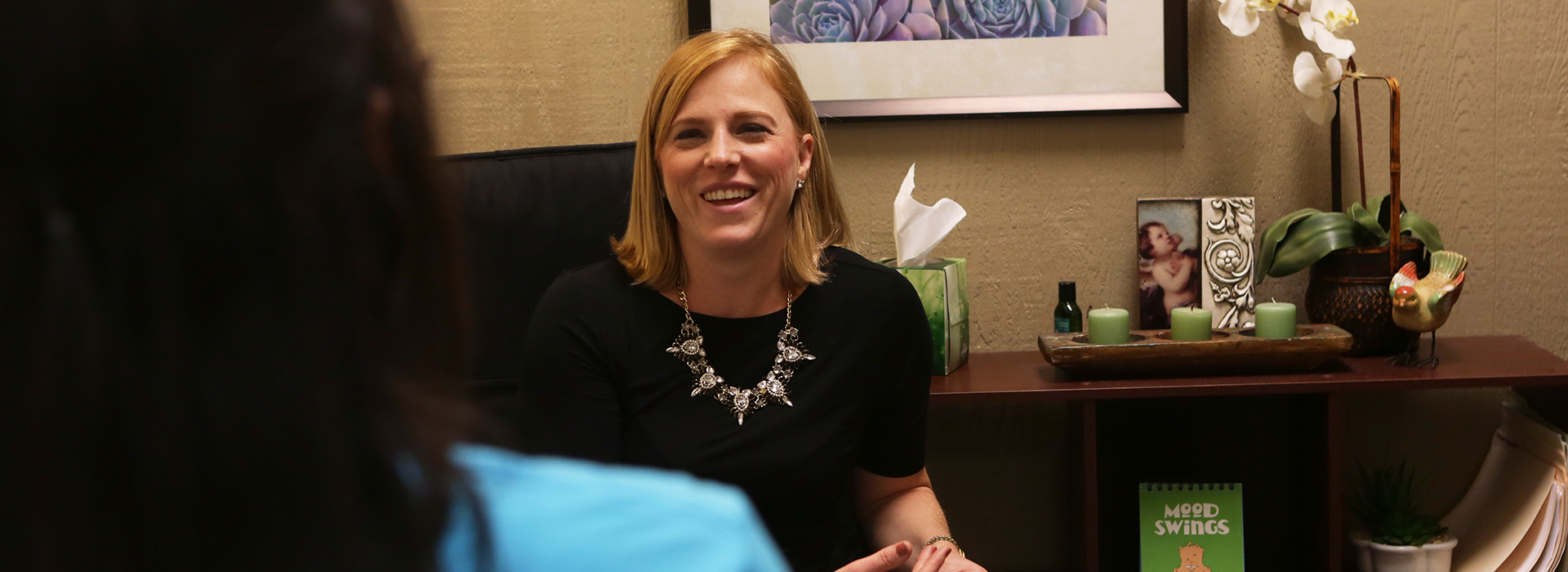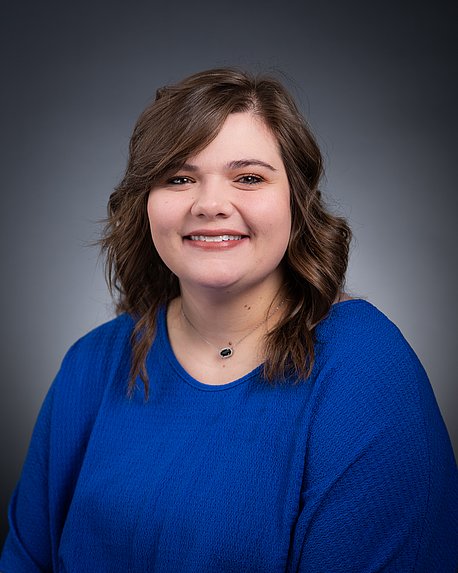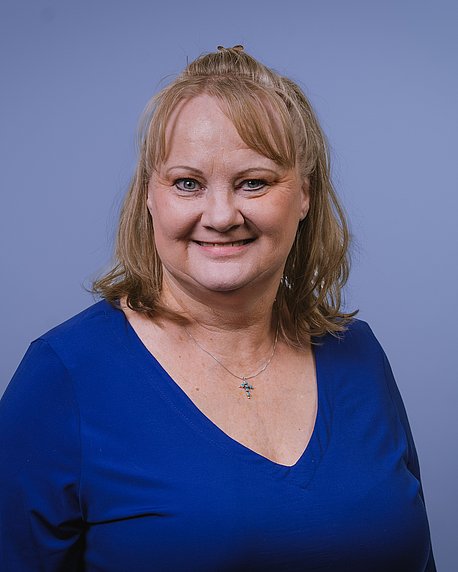
The LCU Counseling Center provides professional, confidential services for a variety of personal, relational and academic concerns for Lubbock Christian University students, faculty, staff, and dependents. Anyone seeking counseling services is entitled to an intake or consultation counseling session free of charge. After the initial session, each subsequent session will be $10 each. Payment can be made with cash, check, or credit/debit card. The Counseling Center does not accept insurance. The staff of the Counseling Center may suggest or make referrals for circumstances that require intensive, long-term care. The client will be financially responsible for any outside help, referred or otherwise. The Counseling Center staff adheres to the ethical standards of their respective professions and to state and federal laws relating to confidentiality.
Our counselors can help with issues related to:
- Stress and Anxiety
- Relationships and Breakups
- Crisis Intervention
- Grief
- Recovery from Abuse
- Academic Concerns
- Sexual Concerns
- Family Problems
- Homesickness
- Depression
- Future Goals
- Alcohol and Drugs
The LCU Counseling Center focuses on helping students function and develop in the stimulating and stressful environment of college. Problems range in intensity from relatively mild distress to severe and chronic psychological disorders.
Both consultation and counseling are confidential. No information about the students we see or the concerns they discuss is entered on an official college record or released to others without the student's prior written consent.
Sessions typically last no more than 50 minutes and are usually scheduled in advance. Emergencies will be seen as soon as possible.
Beyond individual and couple counseling, the Counseling Center also offers a relaxation lab, group experiences workshops, and unique opportunities to integrate a vast array of culturally diverse individuals and perspectives with west Texas hospitality.
Immediate On-Campus Help
The LCU Counseling Center offers individual counseling, education and intervention to students struggling with drug and alcohol addiction and/or any other type of addiction. Our trained staff are committed to providing quality services to help individuals break free from the strong holds of addiction. Clients may be referred to community services as deemed appropriate.
Sessions are confidential and take approximately three sessions to complete the program. Please contact our office for more information at 806.720.7478.
Campus Contacts
For questions or concerns regarding substance abuse, please feel free to contact the numbers below:
- LCU Counseling Center: 806.720.7478
- LCU Student Life: 806.720.7501
- LCU Public Safety: 806.928.6803
Suicide is a major public health concern. Over 41,000 people die by suicide each year in the United States; it is the 10th leading cause of death overall. Suicide is tragic. But it is often preventable—knowing the risk factors for suicide and who is at risk can help reduce the suicide rate. This video identifies early warning signs and appropriate interventions for a person who may be considering suicide as well as the available mental health and suicide prevention services offered by LCU and the National Suicide Prevention Lifeline.
Building Community
Counseling groups are a good way for those who have encountered similar situations to learn from and support one another.
Each semester the Counseling Center tries to offer a different group counseling experience. Send us an email at counseling@lcu.edu to submit a suggestion on what kind of counseling group you would be interested in!
If you are in a crisis or any other person may be in danger the following resources can provide you with immediate help:
- Emergency: 911
- National Domestic Violence Hotline: 1.800.799.7233
- National Suicide Prevention Lifeline: 1.800.273.TALK (8255)
- National Hopeline Network: 1.800.SUICIDE (800.784.2433)
- Crisis Text Line: Text "START" TO 741-741
- Self-Harm Hotline: 1.800.DONT CUT (1.800.366.8288)
- Family Violence Helpline: 1.800.996.6228
- Parkridge Medical Clinic for Women: Support
- American Association of Poison Control Centers: 1.800.222.1222
- National Council on Alcoholism & Drug Dependency Hope Line: 1.800.622.2255
- National Crisis Line - Anorexia and Bulimia: 1.800.233.4357
- GLBT Hotline: 1.888.843.4564
- TREVOR Crisis Hotline: 1.866.488.7386
- AIDS Crisis Line: 1.800.221.7044
- Veterans Crisis Line: Veterans Crisis Line
- Suicide Prevention Wiki: Suicide Prevention
A referral for counseling should be considered when you believe a student’s problems go beyond your own experience and expertise, or when you feel uncomfortable helping a student with some issue. A referral may be made either because of the way the student’s problems are interfering with his or her academic work or with your teaching, or because observation of the student’s personal behavior raises concerns apart from his or her academic work.
Recognizable indicators:
- Marked decline in quality of course work, class participation, quality of papers or test results; increased absence from class, or failure to turn in work
- Prolonged depression suggested by a sad demeanor, apathy, weight loss, (appearance of lack of sleep) tearfulness
- Nervousness, agitation, excessive worry; irritability, aggressiveness, non-stop talking
- Bizarre, strange behavior or speech
- Violent outbursts
- Extreme dependency on faculty or staff, including spending much of his or her time visiting during office hours or other times
- Marked changes in personal hygiene
- Signs of excessive alcohol or drug use
- Binging or purging of food
- Withdrawal from friends or social isolation
- Physical or sexual assault
- Talk of suicide, either directly or indirectly, such as, “I won’t be around to take that exam anyway,” or “I’m not worried about getting a job; I won’t need one.”
- Uncharacteristic comments in a student’s paper that arouse concern
Each student experiences stress somewhat differently, and many disturbances in the 17- to 22-year-old age group are relatively transient. However, you may become alarmed by even brief changes which are extreme or by significant changes that continue for some time. If there is doubt about the seriousness of the problem, consult a Counseling Center staff member about how to evaluate the situation and follow the most appropriate steps.
Making a Referral
One way of introducing the topic of a counseling referral to a student is to summarize to them what you understand to be the problem. For example, “You sound very depressed about your relationship problems. I have found that other students who felt that way have been helped by talking to a professional, like someone at the Counseling Center. How would you feel about that?”
In speaking to the student about counseling, it is important to keep in mind some of the negative reactions a student may have to the idea and be ready to discuss them.
You can explain to the student that counseling is not just for “crazy” people (most clients have normal “problems in living”) nor does it encourage dependency (counseling is time-limited on campus). Counseling does provide a chance to explore feelings and solve problems with the help of an objective, sensitive, concerned listener, who is professionally trained.
Once the student has agreed that counseling might be useful, there are several possible steps to take, depending on the student’s attitude and the urgency of the situation.
- Give the student information about the Counseling Center and urge them to call.
- Offer to let the student call from your office right then, so that a public commitment will be made.
- Accompany the student yourself to make sure he or she arrives at the Counseling Center and provide the center with any necessary information. The Counseling Center staff will appreciate your calling ahead if the student is being brought over or sent directly so that plans can be made to have a counselor available.
Although most students are ambivalent about counseling, it is important that the student really wants help. Coercing a student to go to counseling is not likely to have positive results in the long run. Generally, unless there is some immediate concern about the welfare of the student, it is better to try to maintain your relationship with the student rather than to force them to go to the Counseling Center. The idea can be brought up again later.
After the Referral is Made
Making an appointment at the Counseling Center is simple. If a student is visiting the Counseling Center for the first time, they will be scheduled to meet with a counselor for an initial assessment. Students may call the Counseling Center at 806.720.7478 to schedule an appointment in advance. In addition, a limited number of same day appointments are available. In an emergency, as defined either by you or the student, it is recommended that the student be seen on the same day.
The purpose of the initial interview assessment is to learn what is troubling the student and to assess appropriate services for those issues. (e.g., individual or group counseling at the center or referral to a more appropriate service on campus or in the community).
If ongoing counseling is appropriate, regular appointments will be scheduled for 45 to 50 minutes. At busy times of the year, it may be two weeks or so before regular appointments begin, but students are encouraged to let the office know if they feel too distressed to wait, and they will receive priority scheduling.
It is important for members of the campus community to understand that the interviews conducted with students at the Counseling Center are confidential. Information or content of those sessions cannot be released or discussed without the student’s written permission. The Center staff adheres very strictly to ethical and legal parameters of Confidentiality.
If a faculty or staff member is interested in knowing whether a student has visited or contacted the center, they should ask that student directly (since students are not bound by the same obligation of confidentiality that counselors/psychologists are obliged to keep). In some instances, a student may want the Counseling Center to share certain information with faculty, staff, or a parent. This can be done if the student provides written authorization that specifies the purpose and content of such a disclosure.
Working with Students
In some cases, students who seek your help or arouse your concern may work more effectively with you rather than being referred to counseling. Your willingness to listen may be very important to those students. You may also choose to work with the student on improving his or her academic work without focusing on the psychological issues that underlie the behavior. A counselor at the Counseling Center can be consulted on how to best handle either of these approaches or how to make a referral.
Visit our new Patient Portal to schedule appointments, fill out and find forms, and more!
To get in touch, come by the Center during regular office hours, or call the Counseling Center at 806.720.7478. You may also request an appointment via the patient portal, linked above. Emails may be sent directly to Counseling@LCU.edu, and the Center is located on the 2nd floor of the SUB, Room 202.
Regular office hours:
- Monday-Thursday: 8 a.m. - 12 p.m. (Closed for Chapel); 1 p.m. - 5 p.m.
- Friday: 8 a.m. - 3 p.m.
- Summer office hours vary.


